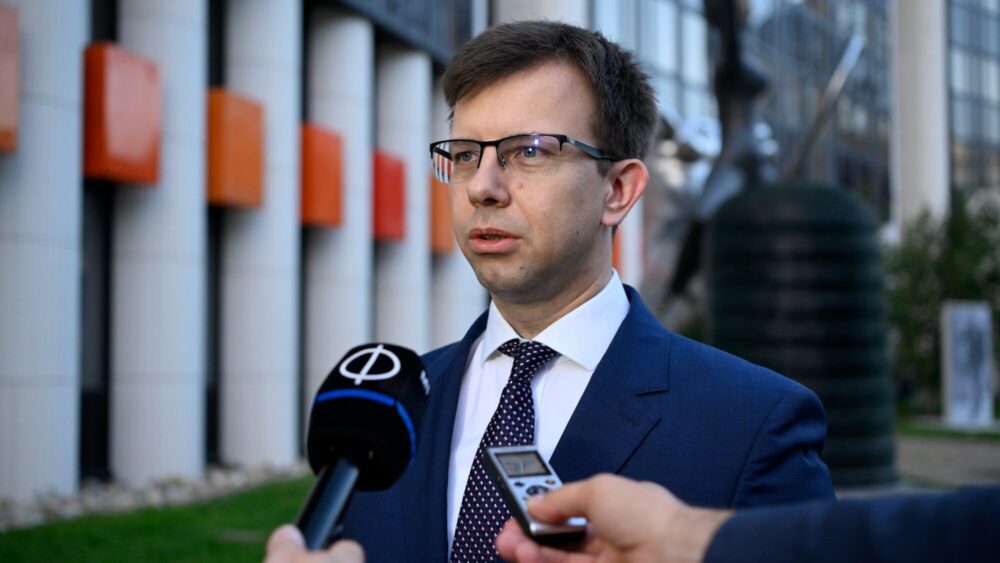
Hungarian EU Affairs Minister János Bóka
Zoltan Kovacs / X
Following months of deadlock, Hungary’s European Union affairs minister János Bóka confirmed on Tuesday, September 24th, that the country is willing to implement the June ruling from the European Court of Justice (ECJ) and reform its asylum rules, but won’t pay the fines accumulated to date for non-compliance.
Three months ago, the Court found that Hungary violated the EU’s common asylum rules by requiring migrants to apply for protection at Hungarian embassies before entering the country and deporting those found to have entered illegally. Both measures aim to prevent failed asylum seekers from disappearing in the Schengen zone—one of the problems member states most cite regarding Brussels’ current migration rules.
The ECJ issued Hungary an unprecedented fine of €200 million and an additional €1 million for each day until the ruling has been implemented. So far, the accumulating total now amounts to an extra €93 million on top of the original fine.
Hungarian PM Viktor Orbán called the ruling that punishes a member state for doing its duty under the treaties “outrageous and unacceptable” back then, and the government later said that it was even willing to sue the European Commission to recover expenses spent on protecting the EU’s external borders.
The #ECJ’s decision to fine #Hungary with 200M euros plus 1M euros daily(!!!) for defending the borders of the European Union is outrageous and unacceptable. It seems that illegal #migrants are more important to the Brussels bureaucrats than their own European citizens.
— Orbán Viktor (@PM_ViktorOrban) June 13, 2024
Last week, however, the Commission triggered a special procedure to deduct the fines from Hungary’s earmarked EU funds to circumvent the country’s unwillingness to pay up. Possibly to prevent this from happening, Budapest changed tack and agreed to implement the ECJ ruling, but still insists on not paying the ridiculous fines.
Bóka told reporters on Tuesday in Brussels
As far as the financial penalty is concerned, I can confirm that the Hungarian government will not pay this penalty. As I understand, the Commission has other tools at its disposal to recuperate this sum.
But, he went on, Budapest is willing to engage in a “constructive way” with the Commission to ensure full compliance with the Court ruling and implement the EU’s asylum procedure on its fortified southern border with Serbia, itself a prospective EU member.
Referring to a recent meeting with outgoing Home Affairs Commissioner Ylva Johansson, Bóka said they agreed on “a timetable on how we will conduct these discussions and also on the technicalities and the channels of communications.”
But if the Commission still insists on deducting the fines from Hungary’s EU budget, then Budapest will also keep the topic of compensation on the table, as its expenses related to protecting the EU’s external borders amounted to over €2 billion since 2015, the year it constructed a 200km fence on its southern border.
The minister said Budapest was looking into “legal possibilities on how certain expenses that we have incurred in the protection of the border could be offset” against the penalty.
